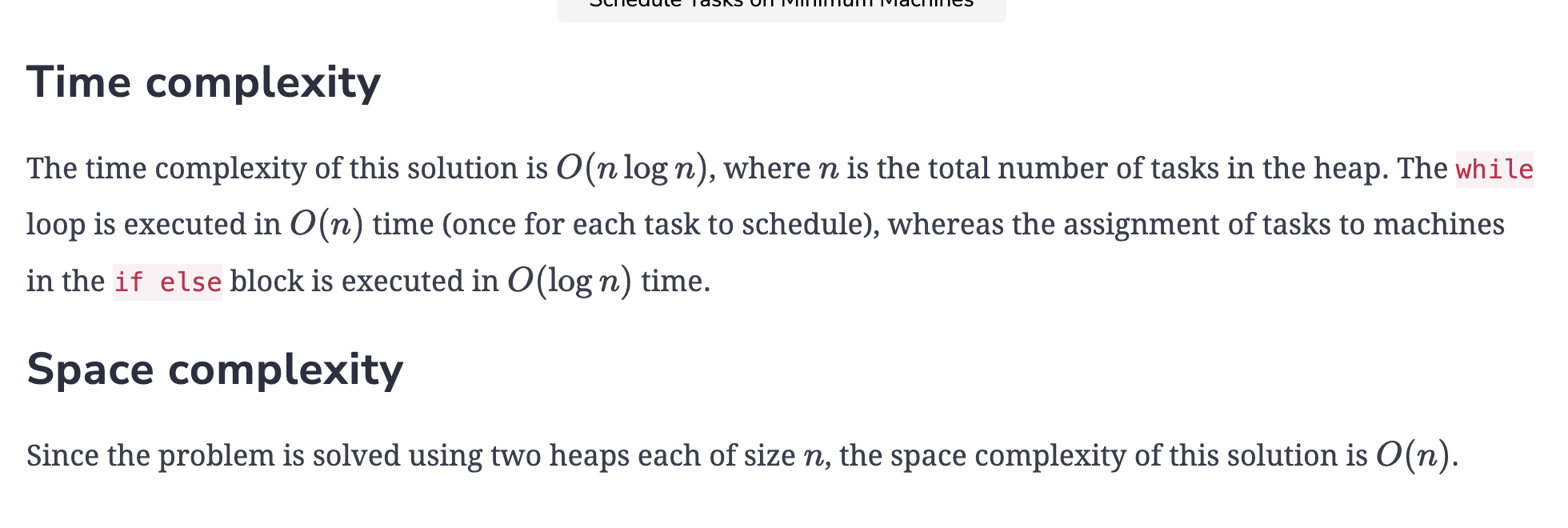Created
April 5, 2023 13:32
-
-
Save optimistiks/221f24b051f8dc66c147f7684f1fbc88 to your computer and use it in GitHub Desktop.
Given a set of n number of tasks, implement a task scheduler method, to run in O(n log n) time that finds the minimum number of machines required to complete these n tasks.
This file contains hidden or bidirectional Unicode text that may be interpreted or compiled differently than what appears below. To review, open the file in an editor that reveals hidden Unicode characters.
Learn more about bidirectional Unicode characters
| // tasksList is an array of tuples [startTime, endTime] | |
| export function tasks(tasksList) { | |
| // keep our tasks in min-heap, with task with earliest start time on top | |
| const tasksHeap = new TupleHeap(); | |
| // keep our machines in min heap, with machine whose task finishes earliest on top | |
| const machinesHeap = new Heap(); | |
| // push all our tasks into min heap | |
| for (let i = 0; i < tasksList.length; ++i) { | |
| tasksHeap.push(tasksList[i]); | |
| } | |
| while (tasksHeap.length() > 0) { | |
| // pop the earliest starting task | |
| const [startTime, endTime] = tasksHeap.deleteTop(); | |
| // if there are no machines, or, | |
| // if machine whose task ends the earliest still ends after our current task start, | |
| // allocate a new machine | |
| if (machinesHeap.length() === 0 || machinesHeap.peekTop() > startTime) { | |
| machinesHeap.push(endTime); | |
| } else if (startTime >= machinesHeap.peekTop()) { | |
| // this task can be processed in the top machine, so we update it's end time | |
| machinesHeap.deleteTop(); | |
| machinesHeap.push(endTime); | |
| } | |
| } | |
| return machinesHeap.length(); | |
| } |
Sign up for free
to join this conversation on GitHub.
Already have an account?
Sign in to comment
